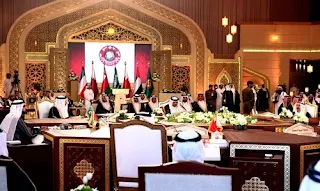A recent United Nations Security Council (UNSC) resolution against Israeli settlement expansion has rescued the two-state solution to the Palestinian-Israeli conflict, Arab League (AL) Secretary-General Ahmed Aboul-Gheit said in a statement Wednesday.
"The two-state solution was about to become an impossible dream due to the Israeli settlement expansion policies whose pace has recently become frenziedly rapid," said the AL chief in the statement.
On Dec. 23, the UNSC endorsed a resolution demanding an immediate and complete halt of Israeli settlements on the occupied Palestinian territories.
It was voted for by 14 out of the council's 15 member states, while the United States, Israel's biggest ally, abstained to allow the resolution to pass despite counter attempts of US President-elect Donald Trump.
Egypt, which initially proposed the draft resolution, sought to delay the whole vote, which was seen as response to a bid from Trump. However, the Egyptian Foreign Ministry later explained that the requested delay was only meant to make sure the veto right will not be exercised against the resolution.
The draft resolution was later resubmitted for vote by New Zealand, Venezuela, Malaysia and Senegal and it was massively endorsed.
Aboul-Gheit expressed appreciation for "the brave position" adopted by the states that voted for the resolution, "which eventually led to an unprecedented international consensus to condemn settlement expansion and call for its cessation."
"The resolution is a necessary initial step toward the peace process resumption based on the land for peace principle, the Arab Peace Initiative and the relevant international resolutions," the pan-Arab body chief added.
Earlier in December, the Knesset, Israel's parliament, initially approved a couple of controversial pro-settlement bills meant to retroactively legalize about 4,000 settlement homes as well as unauthorized Israeli outposts and to allow expropriation of more Palestinian lands in the West Bank.
Over 400,000 Israeli settlers currently live in the West Bank and at least 200,000 others live in East Jerusalem, which the Palestinians see as the capital city of their future state.
Israel is blamed by the international community for the deadlock of the Middle East peace process due to its settlement expansion policy that is rejected even by its closest ally, the United States.
Supported by the United States, Russia, China, the European Union and many other states, a UN-sponsored two-state solution seeks to put an end to the Israeli-Palestinian conflict via the establishment of an independent Palestinian state within the 1967 borders.
Tel Aviv condemned the endorsement of the recent anti-settlement resolution and Israeli Prime Minister Benjamin Netanyahu, also foreign minister, summoned most of the ambassadors of the states that voted for it to express his country's protest.
[globaltimes.cn - Xinhua]
29/12/16
-
Related:
"The two-state solution was about to become an impossible dream due to the Israeli settlement expansion policies whose pace has recently become frenziedly rapid," said the AL chief in the statement.
On Dec. 23, the UNSC endorsed a resolution demanding an immediate and complete halt of Israeli settlements on the occupied Palestinian territories.
It was voted for by 14 out of the council's 15 member states, while the United States, Israel's biggest ally, abstained to allow the resolution to pass despite counter attempts of US President-elect Donald Trump.
Egypt, which initially proposed the draft resolution, sought to delay the whole vote, which was seen as response to a bid from Trump. However, the Egyptian Foreign Ministry later explained that the requested delay was only meant to make sure the veto right will not be exercised against the resolution.
The draft resolution was later resubmitted for vote by New Zealand, Venezuela, Malaysia and Senegal and it was massively endorsed.
Aboul-Gheit expressed appreciation for "the brave position" adopted by the states that voted for the resolution, "which eventually led to an unprecedented international consensus to condemn settlement expansion and call for its cessation."
"The resolution is a necessary initial step toward the peace process resumption based on the land for peace principle, the Arab Peace Initiative and the relevant international resolutions," the pan-Arab body chief added.
Earlier in December, the Knesset, Israel's parliament, initially approved a couple of controversial pro-settlement bills meant to retroactively legalize about 4,000 settlement homes as well as unauthorized Israeli outposts and to allow expropriation of more Palestinian lands in the West Bank.
Over 400,000 Israeli settlers currently live in the West Bank and at least 200,000 others live in East Jerusalem, which the Palestinians see as the capital city of their future state.
Israel is blamed by the international community for the deadlock of the Middle East peace process due to its settlement expansion policy that is rejected even by its closest ally, the United States.
Supported by the United States, Russia, China, the European Union and many other states, a UN-sponsored two-state solution seeks to put an end to the Israeli-Palestinian conflict via the establishment of an independent Palestinian state within the 1967 borders.
Tel Aviv condemned the endorsement of the recent anti-settlement resolution and Israeli Prime Minister Benjamin Netanyahu, also foreign minister, summoned most of the ambassadors of the states that voted for it to express his country's protest.
[globaltimes.cn - Xinhua]
29/12/16
-
Related:

No comments:
Post a Comment
ethnologia news only